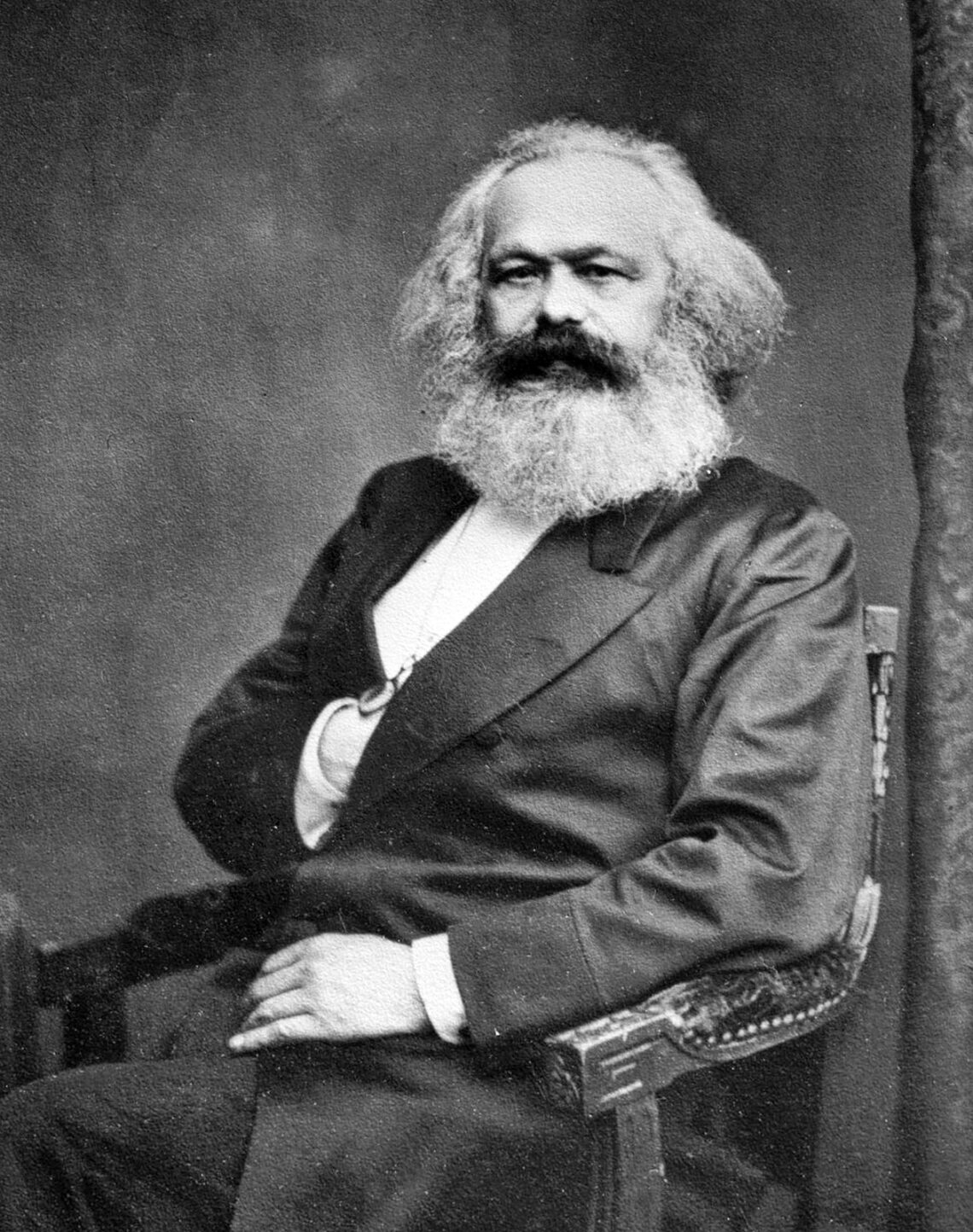You and I believe, hope, fear, and have all sorts of other intentional thoughts. We think about things. If physicalism is true, then none of us have intentional thoughts. Since we plainly do, physicalism is false. Physicalism is the view that all existent entities are describable by theories of physics. On physicalism, one cannot provide a description of a soul. Thus, souls do not exist. Same goes for abstract objects, divine beings, and inbuilt purposes. But what about those mental states of intentional thoughts? Can they be described in purely physical terms? The answer is: no. Here’s one reason why. I believe that the best days are sunny. Me believing…
-
-
On The Communist Manifesto
In order to understand Marx, you must understand Hegel. But no one can understand Hegel. Ergo… Okay, so perhaps we don’t have to completely understand Hegel but merely get a rough grasp of what he was saying. Hegel was born in 1770, taught philosophy at the University of Jena until it was closed down in 1806 after Napoleon overcame the Prussian army, and taught at the University of Heidelberg from 1816 until his death from cholera in 1831. Hegel’s greatest contribution to philosophy is his view of history. Hegel thought that the flow of history has its own internal logic. The logical process of history is like the maturing of a spirit. Just…
-
Thinking Machine: No Such Thing
By thinking, I mean something more than the capacity to calculate or process information. What I mean by thinking is something like having a thought about something. I guess the best place to start thinking about thinking is me. I think I am a thinking thing. As such, I think about stuff. I believe, hope, entertain, consider, fear, and wish all the time. That’s what I mean by thinking. And a machine cannot do it, not now and not ever. By a machine I mean a material object composed of physical parts arranged in such a way as they perform a certain set of functions. Old fashioned clocks are made…
-
What is Human Nature?
During the nineteenth century, Charles Darwin presented a view that was to have a revolutionary effect on how we conceived of ourselves and our place in the world. Darwinism stood opposed to the two traditional views that had been assumed for centuries, the Classical view and the Judeo-Christian view. According to the Classical view, human nature is primarily distinguished by its rational capacities. For example, Plato considered the human soul to be composed of reason, will, and appetite. Plato thought that reason should govern the appetite and enforce its conclusions through the will. Similarly, Aristotle thought that humans are ‘rational animals’, sharing much in common with our creaturely neighbors but…
-
Governing and Human Nature
Consider the present state of political discourse. Isn’t it, at least in part, a discussion about evil and what to do about it? Of course, it also involves thinking about some things as evil and other things as good. But once a political group has decided what they think is evil, the debate is all about what to do about it. Debate over the environment is about what to do to confront the bad effects of successful economies. The debate over wealth and poverty becomes a debate about how to shrink the income gap. The same is true of debates over firearms, border control, the moral status of the unborn,…
-
Plastic Theseus
The famed puzzle about the Theseus’ ship getting its parts replaced involves an assumption: the ship is made of wood and so are the replacement parts. But what if the parts used to replace the old parts are not wood, but plastic? Perhaps, over time, each wooden part of the ship is replaced with a plastic part. We can even follow the story where it usually goes: the old parts are reassembled in some warehouse somewhere. There lies in the warehouse an old ship with all the old wooden parts while at sea a plastic ship goes about its business bearing the famous name. The question is: does this alter…





